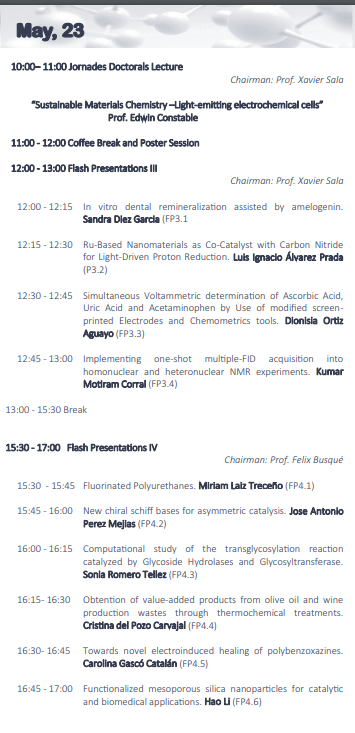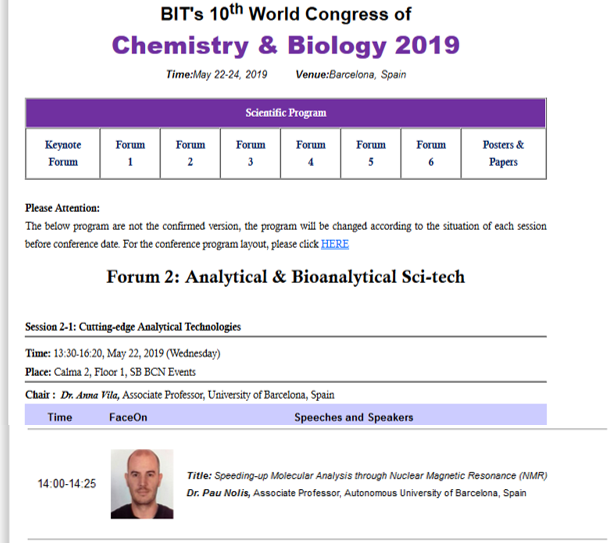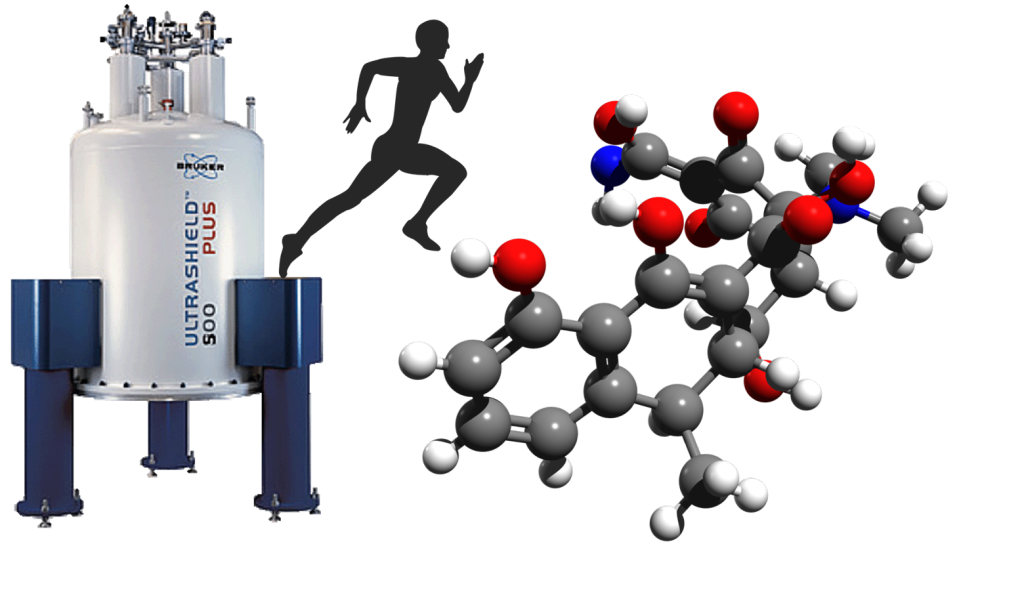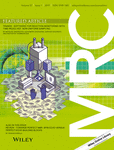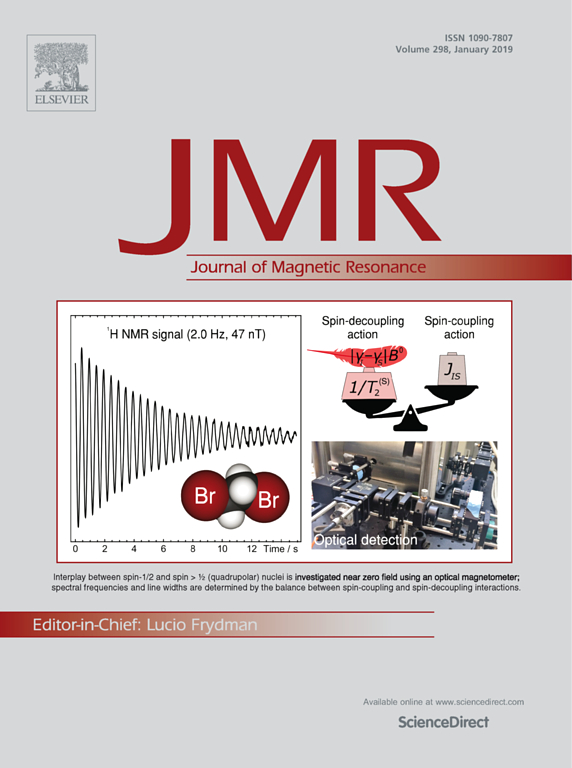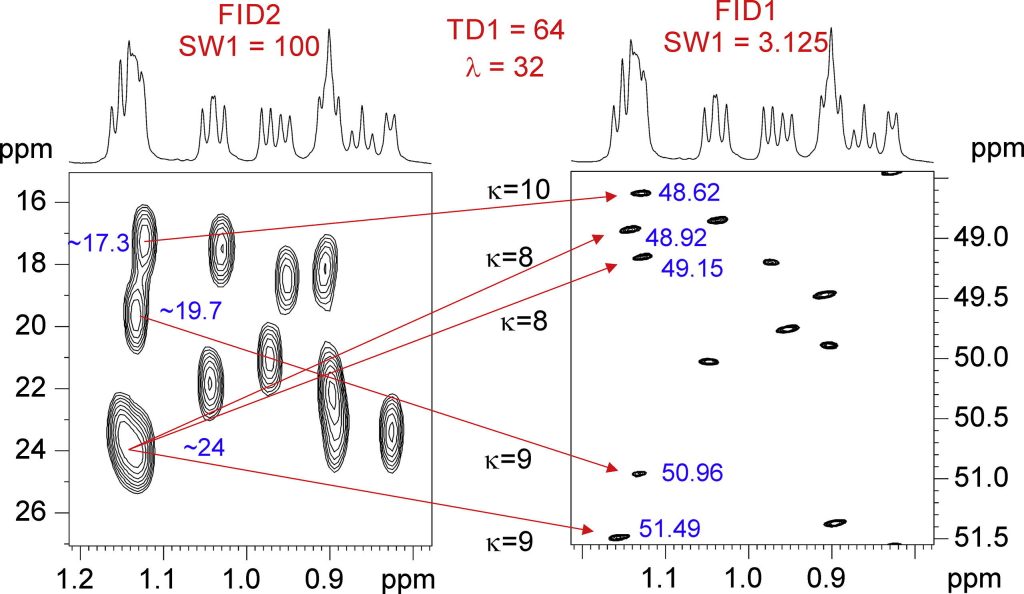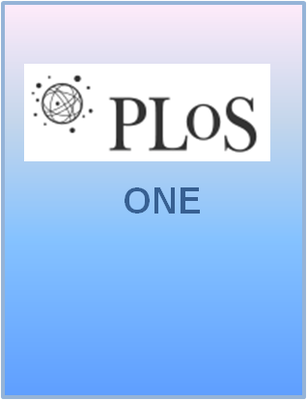
Some of the SeRMN staff will present our last research works at the annual meeting of the European magnetic resonance community ISMAR EUROMAR 2019 Conference that will take place from 25th to 30th August in Berlin. Find below a summary of our contributions.
Pau Nolis presents a poster entitled “Reducing experimental time using Multiple Fid Acquisition (MFA) strategy” (P341). Pau Nolis, Kumar Motiram-Corral, Miriam Pérez-Trujillo, Teodor Parella.
Speeding-up NMR molecular analysis is an important research field which has been continuously advancing since NMR early days. The relevant benefits are clear and evident: reduce the time per analysis directly reduce its cost and gaining spectrometer time to analyze new samples. Many interesting tools and concepts have been appearing in last decades. Concretely, our experience focuses on the development of new NMR experiments using TS (Time-Shared), SA (Spectral Aliasing) and MFA (Multiple Fid Acquisition). MFA strategy is an interesting strategy that allows the acquisition of different structural information in a single experiment. Basically, MFA experiments consist in the design of pulse sequence experiments which accommodate several acquisition windows per experi-ment, each registering different relevant information for the structural molecular character-ization. The methodology brings a corresponding important time benefit. Last year, we have reported several new NMR experiments designed with MFA stratey and herein we would present the most relevant achievements. The overall discussion will be mainly focused on the sensitivity gains per time unit of the presented experiments.
Eva Monteagudo presents a poster entitled “Enantiodifferentiation Study of Spiroglycol Chirality” (P306). Eva Monteagudo, Albert Virgili, Teodor Parella, Carles Jaime.
The 3,9-bis(1,1-dimethyl-2-hydroxyethyl)-2,4,8,10-tetraoxaspiro[5.5]undecane commonly named pentaspiroglycol (PSG) or spiroglycol (SPG) is a high molecular weight rigid alicy-clic diol widely used in the chemical industry. SPG has no hazardous classification, it is not mutagenic and is a safe alternative to Bisphenol A, a well-known chemical which is rising concern due to his proved endocrine disruptor activity. Moreover, some of the SPG main applications are focused on epoxy resins, liquid polyester resins, radiation curing resins and in polymer film material field. However, the spiroglycol structure, configuration and conformation have never been deeply studied. Herein, we perform for the first time a preliminary NMR and computational study of the spiroglycol structure. SPG is a highly symmetrical molecule but it should be chiral due to the presence of a chiral axis. The presence of two enantiomers was demonstrated per-forming NMR enantiodifferentiation experiments using α,α’-bis(trifluoromethyl)-9,10-an-thracenedimethanol (ABTE) as chiral solvating agent (CSA). The addition of 0.6 equivalents of ABTE allows the differentiation of several spiroglycol proton signals. The lack of resolu-tion observed in the proton spectrum can be tackled through the corresponding 13C NMR spectrum where a significant enantiodifferentiation at the spirocarbon atom was observed.In order to physically separate both enantiomers, a SPG derivatization with camphor-sulphonic acid was performed affording the corresponding diastereoisomeric ester mixture.
